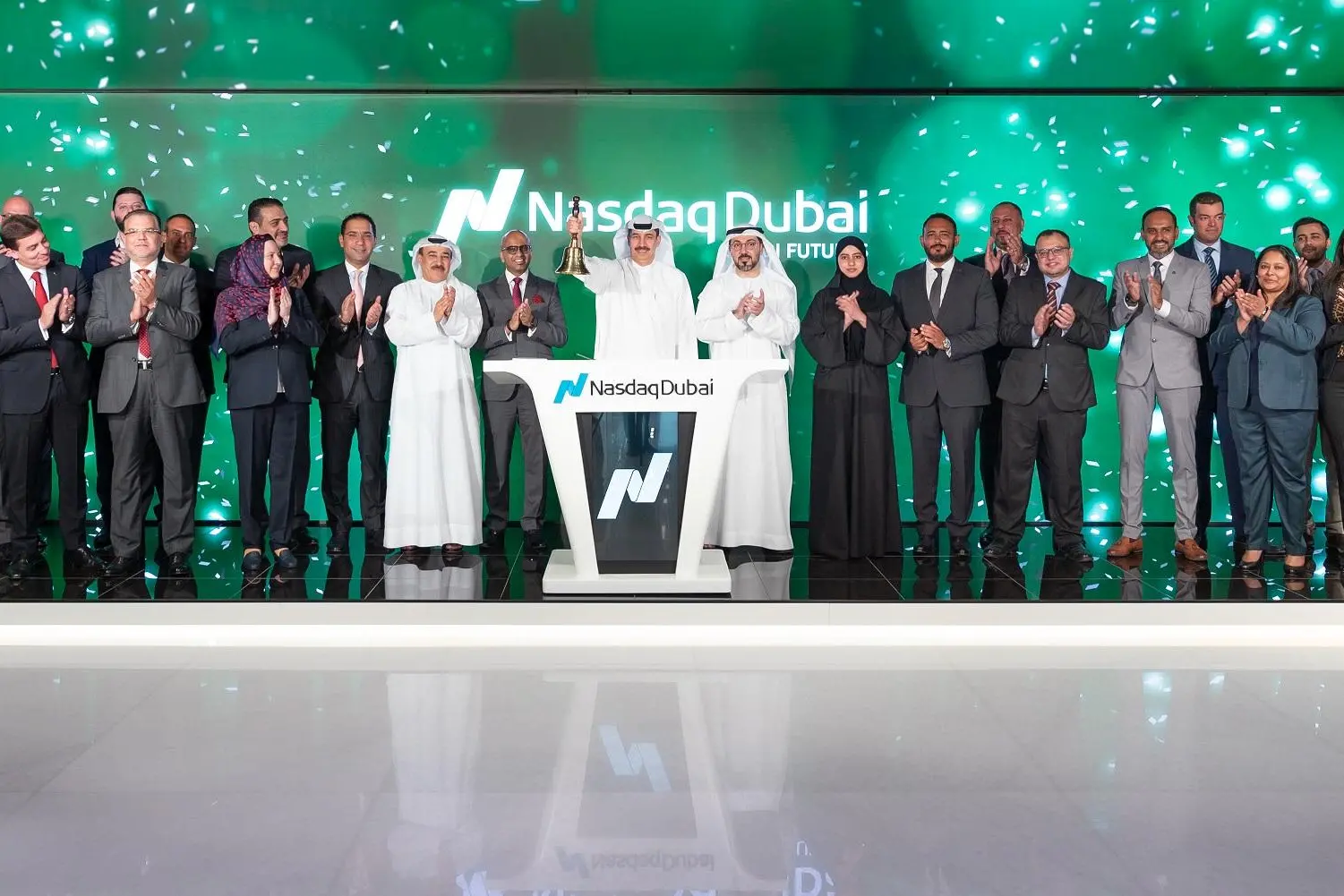PHOTO
The launch of new Saudi equity futures contracts based on on Nasdaq Dubai on Wednesday lifted the value of futures trades on the exchange, with Saudi futures taking 60 percent of the total volumes on launch day, market data from the exchange has shown.
Nasdaq Dubai has launched futures trading on the shares of 12 Saudi Arabian companies that have a combined market capitalisation of 794 billion Saudi riyals ($ 212 billion) on Wednesday. On the first day of trading, Saudi Arabia futures’ traded value was of 914,832 Saudi riyals, ($243,921), compared to a total traded futures value of 1,487,605 UAE dirhams ($404,983) through 25 trades. This represented a 36.6 percent daily increase on traded values, up from 1,088,810 dirhams through 14 trades. Traded volumes increased again on Thursday - up 24 percent to 1,856,357 UAE dirhams, through 28 trades.
The 12 Saudi companies on which futures contracts are traded are: Saudi Basic Industries Corporation (SABIC), Al Rajhi Bank, Alinma Bank, Almarai Company, Dar Al Arkan Real Estate Development Company, Etihad Etisalat Company, Rabigh Refining and Petrochemical Company, Saudi Arabian Mining Company, Saudi Cement Company, Saudi Electricity Company, Saudi Kayan Petrochemical Company and Altayyar Travel Group.
Futures contracts allow people to speculate on, or hedge against, price movements on an underlying asset such as a share, currency or commodity. Contract participants agree a price that should be paid for the asset at a set price in the future, and the contract can then be bought or sold via an exchange.
“The move enables investors to gain from changes in the Saudi-listed companies’ share price by trading the futures on Nasdaq Dubai,” Nasdaq Dubai said in a press release published on Wednesday.
Marie Salem, director of capital markets at FFA Private Bank (Dubai) Limited, told Zawya by email, that the launch was a positive move and "another milestone for Nasdaq Dubai", but said that activity in futures trading in the region remains muted.
Nasdaq Dubai began offering futures contracts in 2016, and in February 2018 it launched futures contracts linked to the Dubai Financial Market’s general index and Abu Dhabi Securities Exchange’s main share index.
Salem said that “this has not attracted investors the way we were expecting it to or were hoping for”.
“Trading equity futures is supposed to provide opportunities in bullish and bearish markets, however, investors are not so much aware of the advantages such products offer, or they might yet refuse to acknowledge it,” Salem said.
“Futures should enhance liquidity in the markets given the fact that they offer the chance to short the markets when needed and hedge positions,” she added.
Salem said that it is difficult to assess as yet how well futures trading on Saudi equities would perform, but said “we surely hope for the best outcomes as we see more traction in the Saudi Futures launch due to the increased interest of foreign investors in the Saudi market and expectations that speculators would join the game prior to 4Q18 (fourth quarter of the year 2018) and 1Q19 (first quarter of the year 2019) earning releases”.
The awaited inclusion of the Saudi market in the MSCI and FTSE Russell emerging market indices later in the year is expected to attract billions of dollars of passive fund flows into the Saudi market.
(Reporting by Gerard Aoun; Editing by Michael Fahy)
Our Standards: The Thomson Reuters Trust Principles
Disclaimer: This article is provided for informational purposes only. The content does not provide tax, legal or investment advice or opinion regarding the suitability, value or profitability of any particular security, portfolio or investment strategy. Read our full disclaimer policy here.
© ZAWYA 2019





















